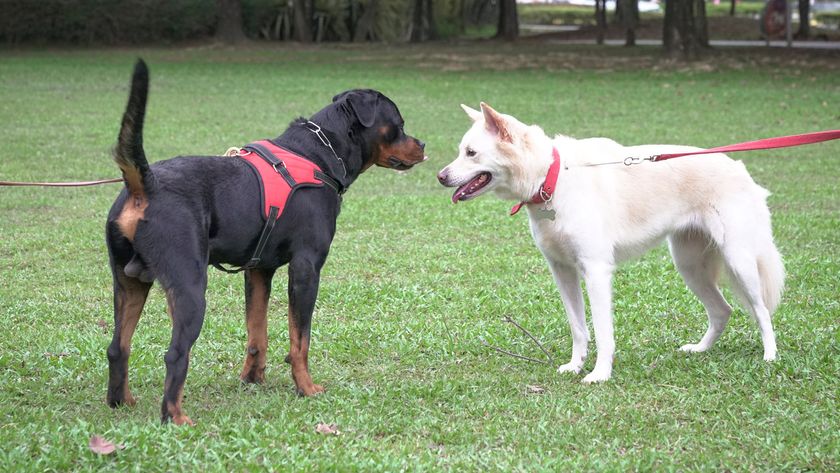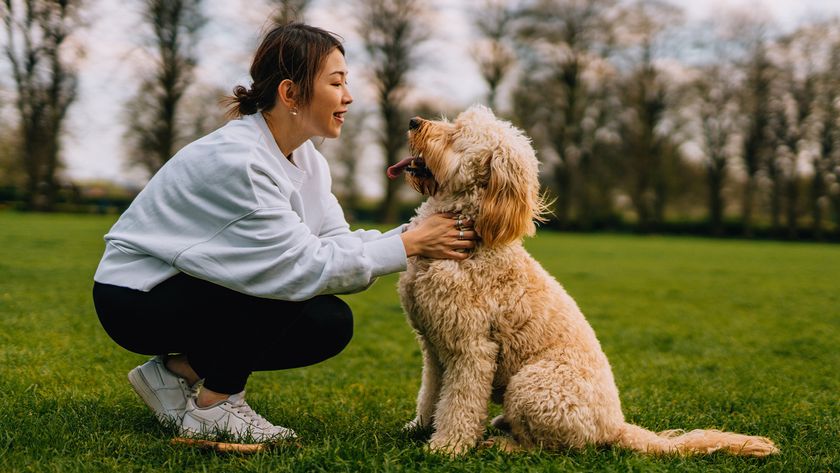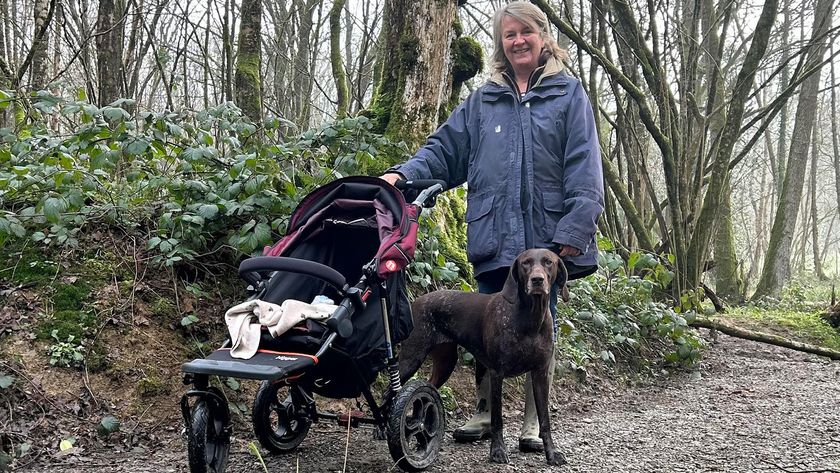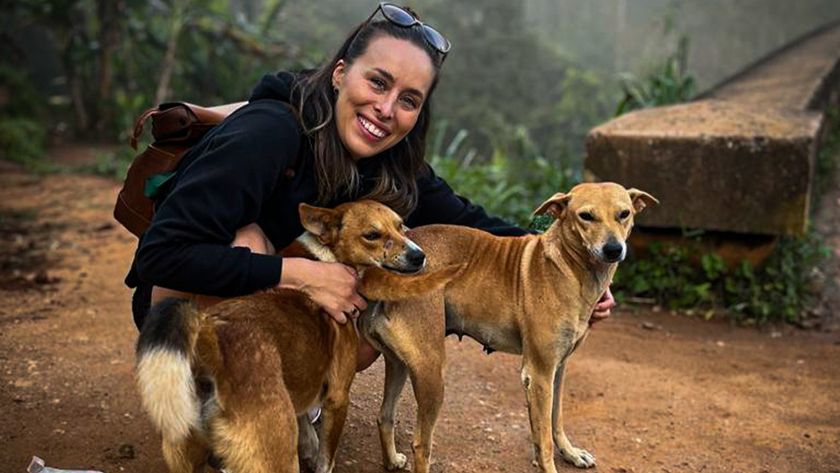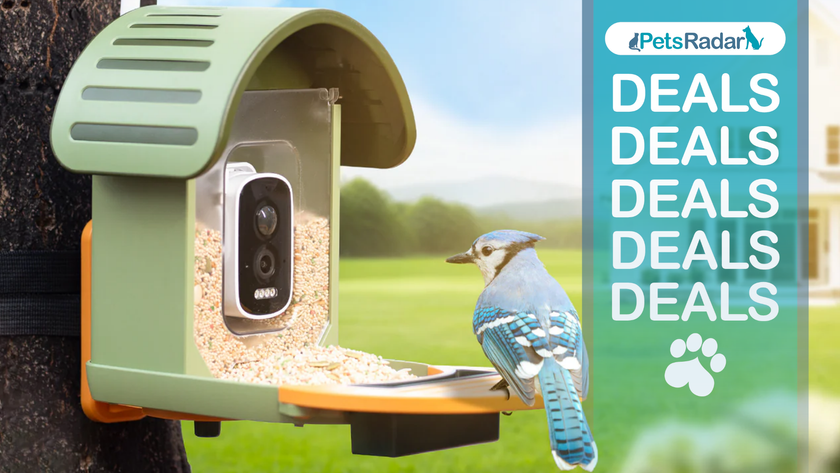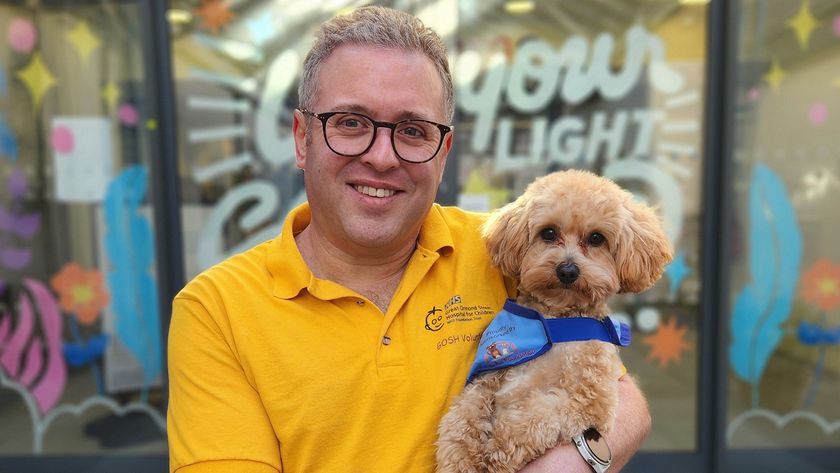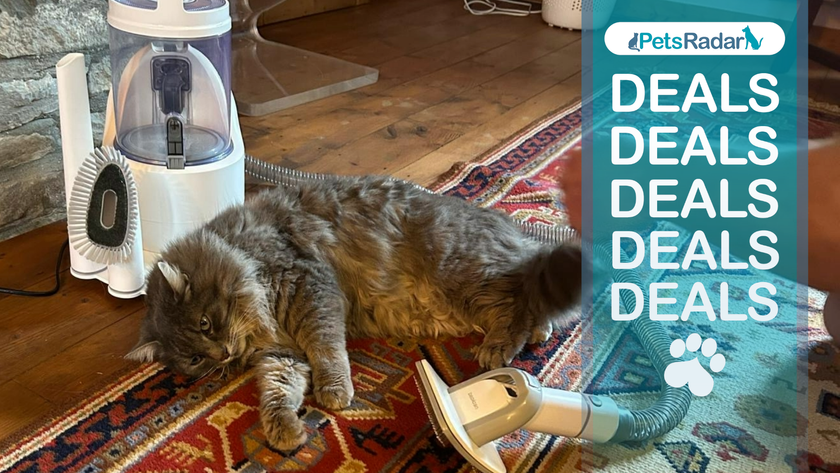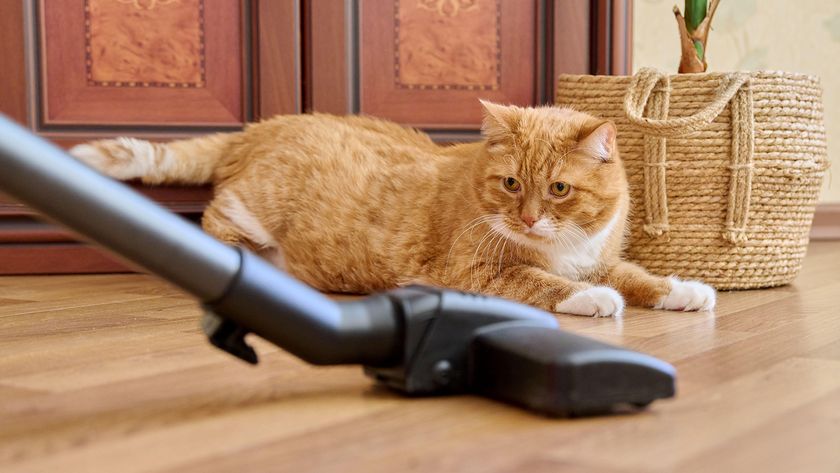Three ways to manage leash reactivity in your dog, according to an expert trainer
Is your dog leash reactive? Improve their behavior around other dogs with this trainer’s three simple tips
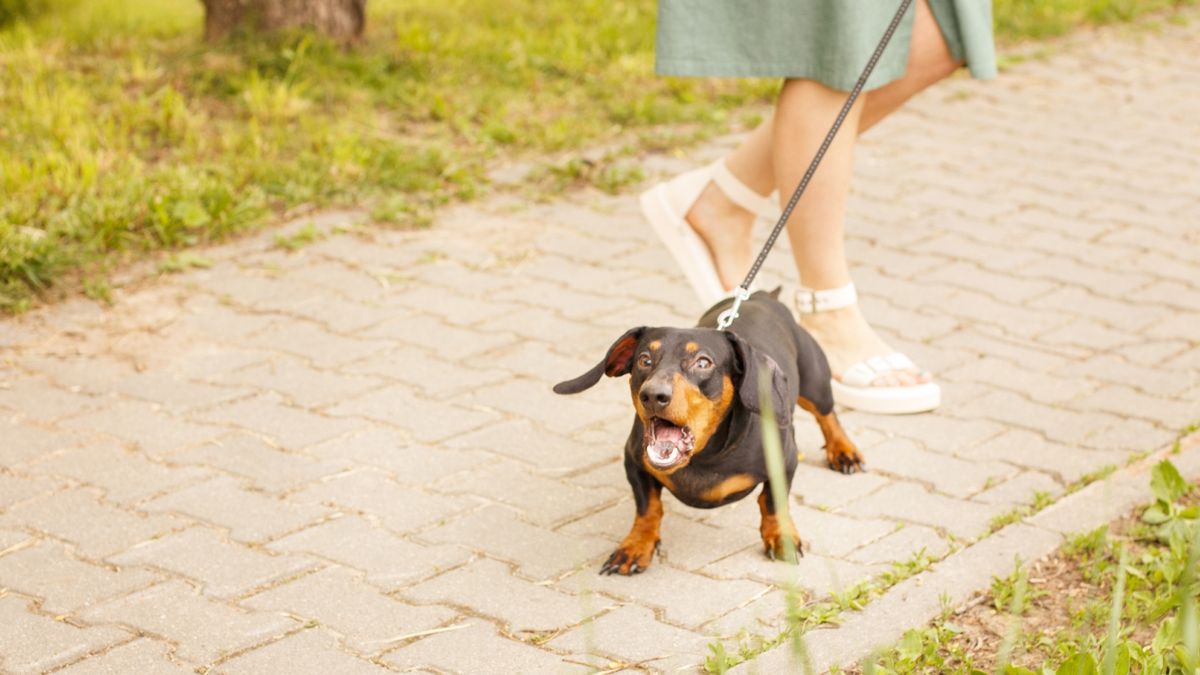
Is your dog leash reactive? A common issue for a lot of pet parents, leash reactivity occurs when a dog barks, growls, lunges, or attempts to jump up when confronted by particular stimuli in their environment.
While leash reactivity is an involuntary emotional state that overwhelms your dog, dealing with it can be both embarrassing and stressful.
Learning how to calm a reactive dog can be hugely beneficial if your pup struggles with reactivity in most situations and environments.
However, if their reactive behavior is largely confined to when they're on a leash, there's a lot you can do to prevent it from occurring in the first place.
Many of us make several common loose leash walking mistakes without realizing it, and these mistakes can end up making reactive behavior more likely.
To help you avoid these and maximize your chances of being able to enjoy a stress-free stroll with your dog, expert trainer Amelia Steele has a few tricks up her sleeve that are well worth trying out.
Read on to find out how you can improve your dog's behavior when you're out walking...
PetsRadar Newsletter
Get the best advice, tips and top tech for your beloved Pets
A post shared by Amelia Steele (@ameliathedogtrainer)
A photo posted by on
1. Put your dog back on the leash: "I like to shorten the leash just in case but keep it nice and loose so that it doesn't add tension to your dog," Steele advises. "Remember, not everybody's dog is friendly and allowing your dog to approach other unknown dogs can cause major issues in the long run."
2. Bring your dog to the outside of you: "If the other dog is approaching to your left, then you want to bring your dog over to the right-hand side of you. This just puts more distance between the dogs and it makes everything much easier."
3. Maintain engagement with your dog: According to Steele, doing this as you pass other dogs will prevent your dog from fixating. "Fixating can not only trigger a reaction in the other dog, but it can also create reactivity in your dog in the long run, so it really helps to keep your dog's focus on you as you're passing another dog."
Reactivity can be incredibly challenging to deal with, but with time, patience, and consistency, you can make huge positive progress with your dog's reactive behavior.
If you find this isn't happening after several months of working with your dog on their leash reactivity, we recommend reaching out to a professional trainer who will be able to work with your dog 1:1.

Kathryn is a freelance writer who has been a member of the PetsRadar family since it launched in 2020. Highly experienced in her field, she's driven by a desire to provide pet parents with accurate, timely, and informative content that enables them to provide their fur friends with everything they need to thrive. Kathryn works closely with vets and trainers to ensure all articles offer the most up-to-date information across a range of pet-related fields, from insights into health and behavior issues to tips on products and training. When she’s not busy crafting the perfect sentence for her features, buying guides and news pieces, she can be found hanging out with her family (which includes one super sassy cat), drinking copious amounts of Jasmine tea and reading all the books.
